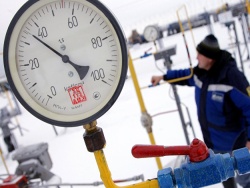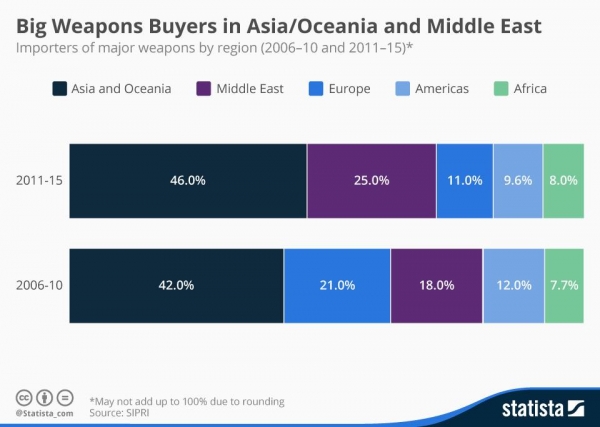
American farmers produce so much milk that they have to get rid of it by any means: giving to charities, expand school menus and develop with large corporations new dishes. Sometimes the milk you just have to pour — and for Europeans is a bad signal.
In the first eight months of 2016 American farmers got rid of 160 million liters of milk, according to The Wall Street Journal, citing data from the Department of agriculture of the United States. Milk poured directly into the field, poured into a compost pit, fed them to livestock, or even left in the middle of the road during transport.
The excess milk would be enough to fill 66 Olympic swimming pools and is the largest volume of wasted milk for the last 16 years.
Manufacturers are struggling to find new ways of marketing: for example, increase portions of milk in school Lunches or to change the recipe for the tacos and muffins. But many can’t even afford to take the milk to the place of sale at current prices, which fell by 36% in comparison with 2014, as the cost of transportation will exceed the profit.
“From the milk get everywhere from Minnesota to New England,” says Ken Nobis, head of the Association of milk producers of Michigan. Members of this organization converted its dairy plants in Ovid and Constantine, by purchasing equipment to process additional million pounds of raw milk every day. The Association has donated more than 300 thousand liters of milk to the food Bank.
However in the summer the Association had to dump a batch of surplus skim milk and use it as fertilizer because it failed to find the driver who would be able to carry this milk to the factory with spare capacity in Wisconsin. “To get rid of milk is a very difficult decision. Nobody ever learns from it no benefit,” says Ken Nobis.
Dairy partners
Just two years ago, the producers of meat and milk in the United States began to expand production in response to the shortage, and it has paved the way for a surplus. This year the farmers managed to raise an impressive crop of corn and soybeans, as well as poultry and cattle. As a result, prices for food products in the United States fell sharply, but household income has been steadily declining for the third consecutive year.
October 11, the Ministry of agriculture of USA (USDA) declared intention to spend $20 million to purchase cheddar cheese from the farmers, and this is the second intervention of the authorities in the situation on the market for the last three months. Simultaneously, the company Dairy Management (de facto marketing services, which pay 43 thousand American farmers) invested tens of millions of dollars to develop a new, rich milk menu for McDonald’s, Taco Bell, Domino’s Pizza and a dozen companies, which she calls “dairy partners”.
For example, McDonald’s would be replaced with oil of liquid margarine, which is used in the morning menu for sandwiches, muffins and scones. A new recipe was introduced in 15 thousand restaurants in September 2015. By words a press-the Secretary of the company Becky Here, replace the margarine with oil was part of the “transition to simple ingredients,” and led to “double-digit sales growth egg mcmuffins”.
The switching company for the use of butter will increase the milk consumption of 300 million liters annually.
Due to the increase in the share of cheese pizzas and butter buns commercial consumption of these two products rose in July year-on-year by 4%. On average, last year each American ate an additional approximately 0.5 kg of butter and cheese, from the data of the Ministry of agriculture.
Last year Dairy Management increased investment in strategic partnership to $30 million — almost twice more than in 2010, when the cooperation with large companies was just beginning.
Even the owners organic dairy farms whose costs are twice the costs of conventional farmers due to the smaller volume of production and expensive feed are forced to sell milk traditional dairy factories to get rid of the product.
“In California, there are manufacturers that want to obtain organic milk that comes to get it on our market in Atlanta,” says Eric Newman, Vice President of sales in the company Organic Valley of La Farge, Wisconsin. This year, this dairy cooperative supplied milk to customers in Europe with a huge discount. “It’s just a nightmare,” admits Newman.
Russian trace
On are low prices for milk in the European Union. On the background of the abolition of quotas on milk production and the introduction of Russian food counter-sanctions of the European countries are faced with a surplus. In July the price of a liter of milk fell to 7-year low to €0,2563 (according to Eurostat). But since August, prices began a slight increase. This contributed to a reduction in milk production in the EU.
Milk production in the EU is subsidized by industry. In mid-July, the authorities of the Union decided to support the producers a subsidy package totaling €500 million.
The theme of overproduction of food and consumer goods is becoming especially acute in light of the negotiations, the U.S. and the EU on the Transatlantic trade and investment partnership (TTIP).
In Europe, many politicians and experts believe that the removal of barriers, harmonization of regulations and standards is a step in the interests of American companies. Their costs are lower (primarily because of lower taxes and labor costs), and hence the prices are more competitive than the Europeans. What will the farmers of the Old world, if if they will reduce or even cancel subsidies is unknown. Most likely, some of them will be able to keep its market niche, some will close or be absorbed by the Americans. And the milk people it will affect most directly.
While EU officials under pressure from the public slowed down the negotiations on TTIP. Sound the big words and promises to fight for European interests to the end.
Recently, the head of the European Commission Jean-Claude Juncker said that Europe will continue negotiations with the United States, but refuses to “stand in front of the Americans to their knees”, according to the French newspaper Le Figaro.
“We will negotiate, but Europe will not kneel before the Americans. We will not abandon to the wind the principles that ensured the success of Europe,” he said in Paris, where he was on a working visit.
The cadet added that it “should not look like we are isolating from the rest of the world.”
You can believe or not to believe these pathetic words of Juncker, but to know on what agreement the EU and US, will be possible only after the fact, since the negotiations and the draft text of the agreement secret.








